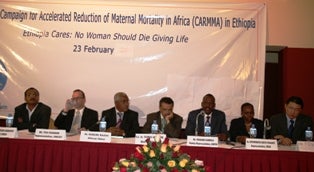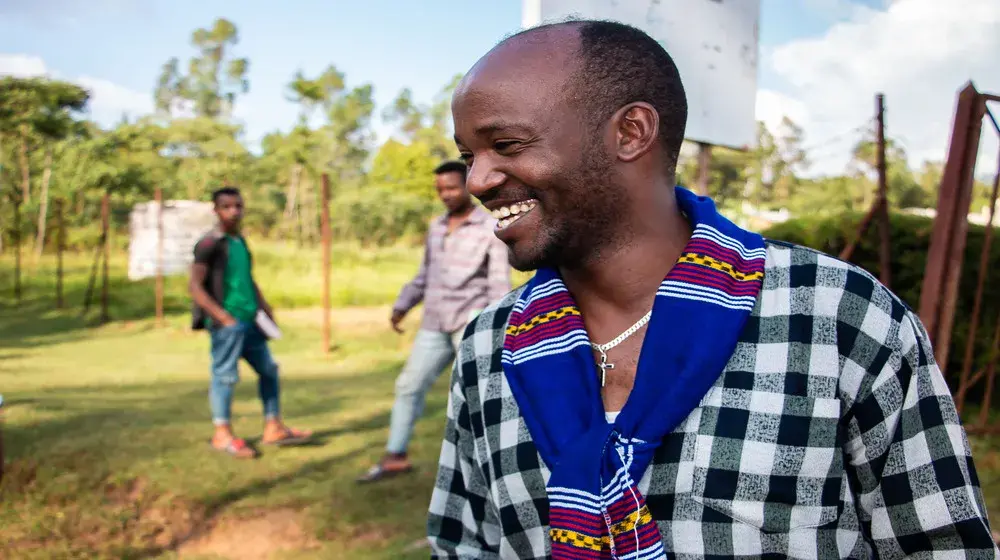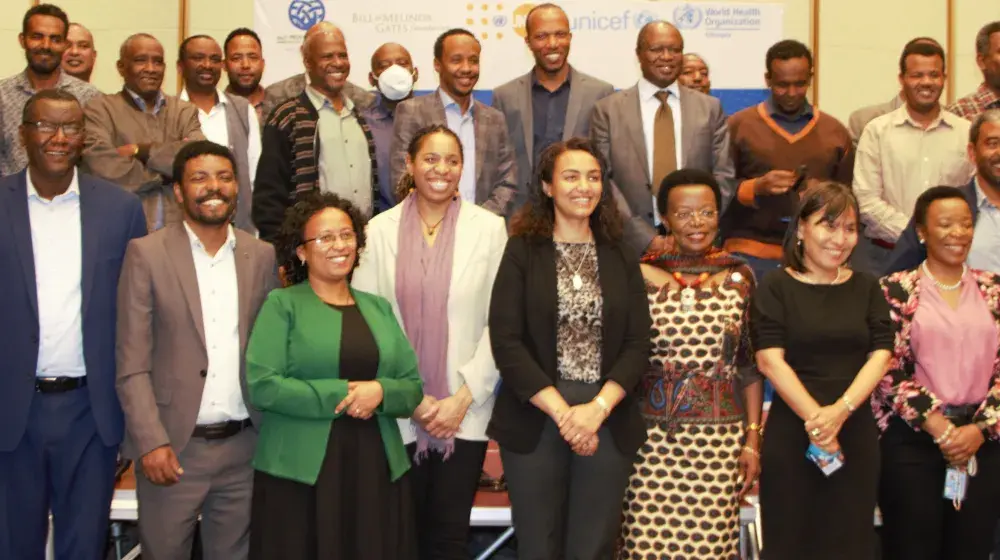The Campaign for Accelerated Reduction of Maternal Mortality in Africa (CARMMA) was launched in Ethiopia today this week as part of the Safe Motherhood Month Campaign which was carried out across the country between January and February.
Making a remark at the launch, Hon. Tedros Adhanom, Minister of Health of Ethiopia said "while we are strong on community based interventions, we need to establish a strong health facility based interventions. Reducing MM requires not only community based interventions but also strong facility based interventions". UNFPA Deputy Representative reiterated on the occasion UNFPA's full commitment to work closely with partners to support necessary actions for a post-launch CARMMA plan of action.

The launch of CARMMA is expected to enhance the decisions adopted by leaders to keep maternal, infant and child health at the top of African countries' agenda for sustainable development through the implementation of all relevant initiatives such as the International Conference on Population and Development (ICPD) Programme of Action, the MDGs, the African Health strategy as well as the Maputo Plan of Action.
CARMMA is a commitment made during the 12th AU Assembly of Heads of State and Government held in Addis Ababa in January 2009 as part of the implementation of the Programme of Action on Sexual and Reproductive Health and Rights, known as the Maputo Plan of Action (Maputo, Mozambique, Sep. 2006). The African Union launched the CARMMA as the ‘African Commitment' on 7 May 2009 in Addis Ababa for increased action toward the reduction of maternal, neonatal and child mortality in Africa.
CARMMA's main objective is to accelerate the availability and use of globally accessible quality services, particularly those related to sexual and reproductive health germane to the reduction of maternal and infant mortality. Specific objectives include, building linkages with global campaigns, raising and maintaining awareness, strengthening and integrating health systems, and enhancing political leadership.
Women's health in Africa is in a dire situation and the continent takes the lion's share out of the 500,000 global maternal deaths occurring annually. If urgent action is not taken, about 2.5 million maternal deaths, 2.5 million child deaths and 49 million maternal disabilities are expected to occur in the next 10 years in Africa according to studies by UNFPA and WHO. It also appears that most African countries are unlikely to achieve the Millennium and National Development Goals of reducing the maternal mortality ratio by 75% without more immediate, concentrated, coordinated and integrated interventions. Furthermore, high Maternal Mortality Ratio (MMR) is an indication of under development in general. As such, political and social development, with solid political commitment as well as a multi-sectoral and multi-pronged approach would be critical for the reduction of MMR.
CARMMA focuses on three key elements: positive messaging; replicating and expanding best practices and encouraging achievements in reducing MMR; and intensifying actions aimed at reducing maternal and associated infant mortality rates in Africa. Priority countries for CARMMA launching were selected based on key criteria, which include high maternal mortality rates, low gender development indexes, strong political commitment through leadership and resource allocation, consideration for regional balance as well as presence of strong UNFPA offices with resources to actively support country-driven efforts in accelerating maternal mortality reduction. Many African countries, including Malawi Mozambique, Nigeria and Ghana have already launched CARMMA in 2009. Similarly, Ethiopia, Egypt, Senegal, Sudan and Tunisia are the countries scheduled to launch the campaign this year.
The CARMMA launching event was attended by the Hon. Minister of Health of Ethiopia, Dr. Tedros Adhanom Ghebreyesus, Dr. Kebede Kassa, RH Expert at the African Union Commissioner for Social Affairs; Dr. Fatoumata Nafo-Traoré, Country Representative, WHO; a representative of World Bank- Country Director for Ethiopia and Sudan; Mr. Ibrahim Sambuli, Deputy Representative, UNFPA; and Mr. Ted Chaiban, Country Representative, UNICEF. Other dignitaries from government offices, NGOs and development partners also attended the ceremony.




